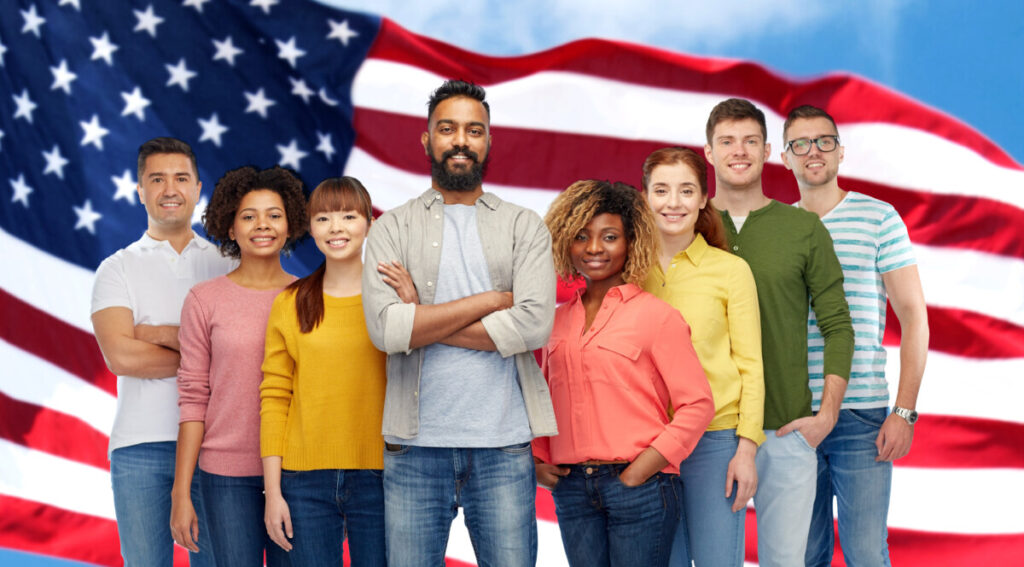On September 19, 2025, President Donald J. Trump unveiled a $100,000 fee requirement for new H-1B visa petitions, using a presidential proclamation as the formal mechanism for the fee announcement. The H-1B program – a key visa category within employment-based visas for skilled foreign professionals – was targeted as part of an effort to protect U.S. workers and prevent abuse of the system. H-1B visas are for specialty occupations, established under the Immigration and Nationality Act, which serves as the legislative foundation for this visa category.
On October 20, 2025, USCIS issued additional guidance. This update confirmed exactly who must pay the $100K fee and who is exempt, providing relief for certain applicants. In short, most new H-1B filings for workers abroad are subject to the fee, whereas many petitions for those already in the U.S. are exempt. Below is a breakdown of the exemptions – in other words, who can benefit from not having to pay this massive new charge.
Who Is Exempt from the $100,000 H-1B Fee?
- In‑country visa holders changing to H-1B status: Individuals already in the U.S. on another visa (such as F-1 students or L-1 intracompany transferees) who switch to H-1B status through a USCIS petition do not have to pay the $100,000 fee. For example, a foreign student on an F-1 visa who is sponsored for an H-1B job after graduation is exempt from the fee under the new guidance. This exemption is a huge relief for recent graduates and U.S. employers hiring them, as it spares them from an onerous cost.
- H-1B workers extending or changing employment in the U.S.: If a professional is already on H-1B status in the United States, any petition to extend their stay, change employers, or amend their H-1B terms will not incur the $100K fee (so long as the petition is approved by USCIS). In practical terms, H-1B visa holders can continue to renew their visas or transfer jobs within the U.S. as before, without facing this exorbitant fee. Notably, USCIS has clarified that current H-1B visa holders will not be charged the fee even if they travel abroad and re-enter on their valid H-1B visa or an approved petition. Simply leaving the country and coming back does not trigger the fee for those who already hold H-1B status.
- Petitions filed before September 21, 2025: The $100,000 fee does not apply retroactively. Any H-1B petition that was filed before the effective date (Sept. 21, 2025) is safe from the fee. This means employers and workers with pending or approved H-1B petitions from earlier in 2025 can proceed as usual, without needing to come up with $100,000. Likewise, anyone who already had a valid H-1B visa as of that date isn’t required to pay anything extra when applying for a visa stamp or traveling on that petition.
These exemptions cover a large portion of H-1B seekers already in the United States, which is welcome news for international students graduating from U.S. schools and for H-1B professionals continuing their employment.
On the other hand, new H-1B sponsorships for workers abroad still trigger the fee. Any petition filed on or after Sept. 21, 2025 on behalf of someone outside the U.S. (who doesn’t already have an H-1B visa) will require the $100,000 payment. This generally includes future lottery selections of overseas candidates and other initial H-1B hires coming directly from abroad. USCIS has set up an online portal for employers to pay this sum and mandates that proof of payment be submitted with the petition. Failing to include the fee or evidence of a qualified exemption will result in the petition being denied.
Are Any Exceptions to the H-1B Fee Available?
The policy allows for case-by-case exceptions to the fee, but these are extremely rare. An employer would have to convince the Department of Homeland Security that the H-1B worker is in the national interest, no U.S. worker is available for the role, the individual poses no security or welfare risk, and that paying the fee would undermine U.S. interests. Only if all of those criteria are met might DHS grant a waiver of the fee – and officials stress that such exceptions will be “extraordinarily rare”. In practice, very few cases are expected to qualify for this relief. The Department of Homeland Security will issue a final decision on each exception request. Most employers will either pay the $100K for overseas hires or focus on candidates already in the U.S. who are exempt.

Navigating the Changes (and Staying Compliant)
The latest USCIS guidance brings a measure of relief and clarity to the H-1B process. Employers and foreign professionals who fall under the exemption categories can move forward without the fear of a $100,000 price tag hanging over their visa petitions. This development particularly benefits U.S. STEM graduates and other skilled workers already here on temporary visas, as well as the companies eager to hire them. It levels the playing field somewhat, ensuring that routine H-1B extensions and changes of status won’t be penalized.
However, the landscape of U.S. immigration remains complex and ever-changing. Even as fee requirements shift, applicants must remember to meet all the usual immigration criteria. For example, health and vaccination requirements are still in force for many immigration applications. In some cases, individuals may need to obtain special vaccine exemptions and waivers to satisfy medical prerequisites for visas or green cards. Navigating these parallel challenges – from fee rules to health mandates – can be daunting without proper guidance.
At Siri & Glimstad, we stay on top of policy updates like these to better assist our clients. Our immigration attorneys are committed to helping you benefit from favorable changes while also ensuring compliance with all other requirements. Whether you are exploring your employment-based visa options or seeking advice on vaccine waivers, our team is here to provide knowledgeable support every step of the way. Staying informed is key – and with the right legal counsel, you can confidently navigate the evolving immigration landscape. For help with any aspect of the immigration process or any immigration questions you may have, fill out the form here to schedule a time to speak with a qualified immigration attorney.
